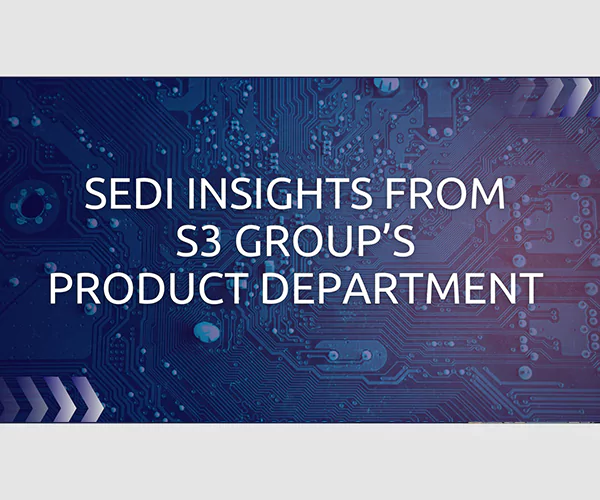In today’s fast-paced business environment, Electronic Data Interchange (EDI) has become an essential tool for companies seeking to optimize their operations. By replacing traditional paper-based processes with electronic data exchanges, EDI offers a range of advantages, from reducing costs to improving accuracy and efficiency. Electronic Data Interchange (EDI) has become an essential tool for companies seeking to optimize their supply chain operations in warehousing and distribution. Here are the key benefits of EDI:
- Improved Efficiency & Speed: EDI accelerates the exchange of business documents such as orders, invoices, and shipping notices between trading partners. Automating these processes reduces manual entry, errors, and delays, enabling faster transaction processing and quicker decision-making. This is particularly beneficial in industries where timing is critical.
- Cost Savings: With EDI, businesses can eliminate paper, postage, and manual labor costs. By reducing errors and automating tasks, EDI also helps to avoid costly mistakes that could result from manual handling of documents, saving both time and money in the long run.
- Accuracy & Reduced Errors: Since EDI transactions are automated and follow a standardized format, the chances of human error such as data entry mistakes or lost documents are minimized. Automated checks further ensure data integrity, reducing costly errors and improving business outcomes.
- Accuracy & Reduced Errors: Since EDI transactions are automated and follow a standardized format, the chances of human error such as data entry mistakes or lost documents are minimized. Automated checks further ensure data integrity, reducing costly errors and improving business outcomes.
- Stronger Relationships: EDI strengthens business relationships by enabling more efficient communication and faster response times with suppliers, customers, and logistics providers. Transparent, accurate, and timely exchanges foster trust and enhance collaboration across the supply chain.
- Security & Compliance: EDI transactions are encrypted and transmitted through secure networks, ensuring sensitive business information is protected. Additionally, businesses can use EDI to meet industry compliance standards, such as HIPAA for healthcare or EDI X-12 standards for retail, providing a seamless and secure exchange of data.
sEDI: A Complete EDI Solution
For businesses looking to enhance their EDI capabilities, sEDI by S3Group offers a cloud-based EDI translator that simplifies the exchange of critical business documents. Ideal for industries like manufacturing, retail, logistics, and eCommerce, sEDI automates processes including purchase orders, invoices, shipping notices, and inventory management.
Key Features of sEDI:
- Cloud/SaaS Platform for easy access and scalability.
- Built-in EDI Translators for essential documents (e.g., Warehouse Shipping Orders, Inventory Adjustments).
- API Connectors for seamless integration with existing Warehouse Management Systems (WMS).
- It supports EDI standards like X-12 and EDIFACT and secures protocols like AS2 and SFTP.
- Real-time Transaction Monitoring for enhanced visibility and tracking.
With sEDI, businesses can reduce errors, improve communication, and streamline supply chain operations with ease.

